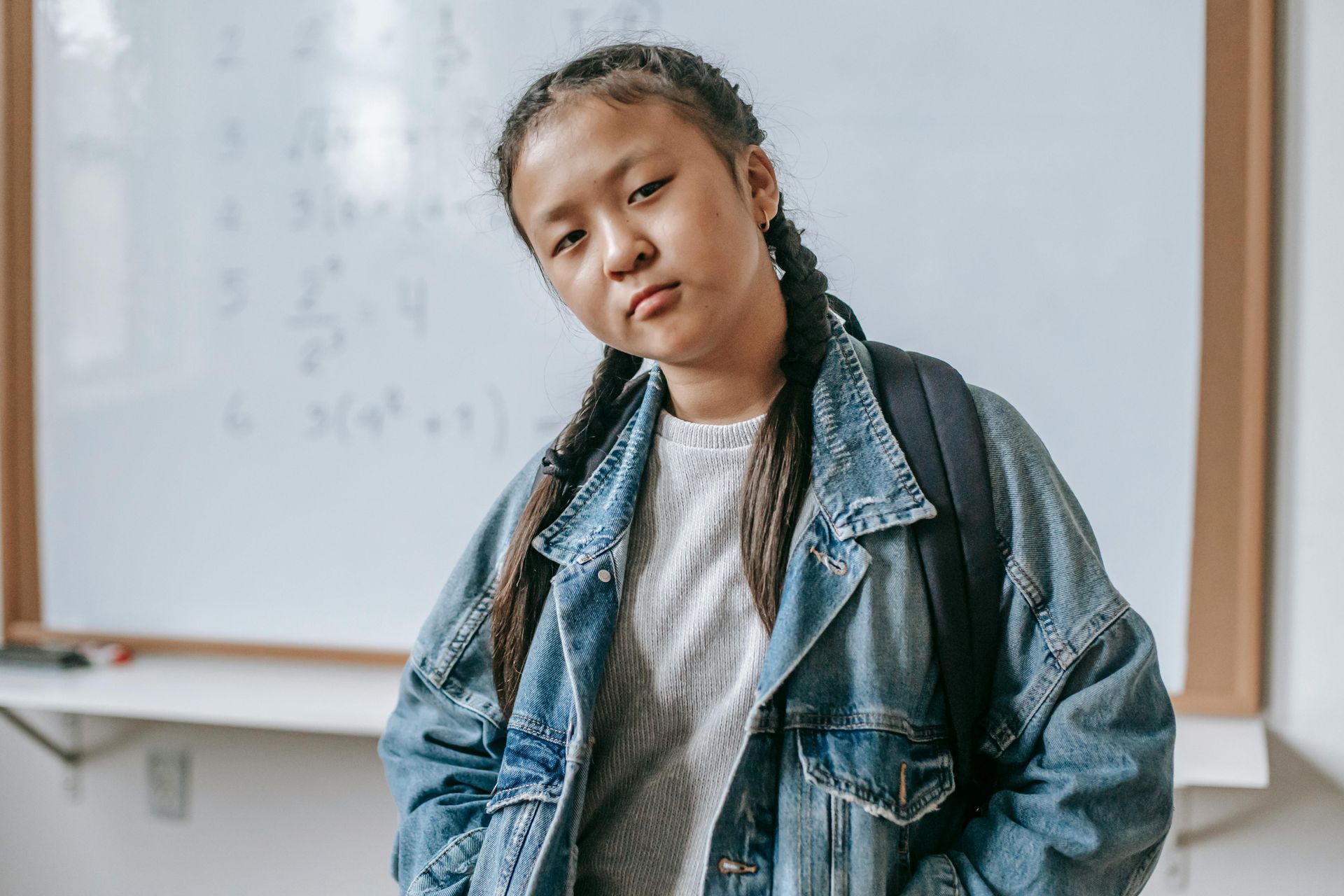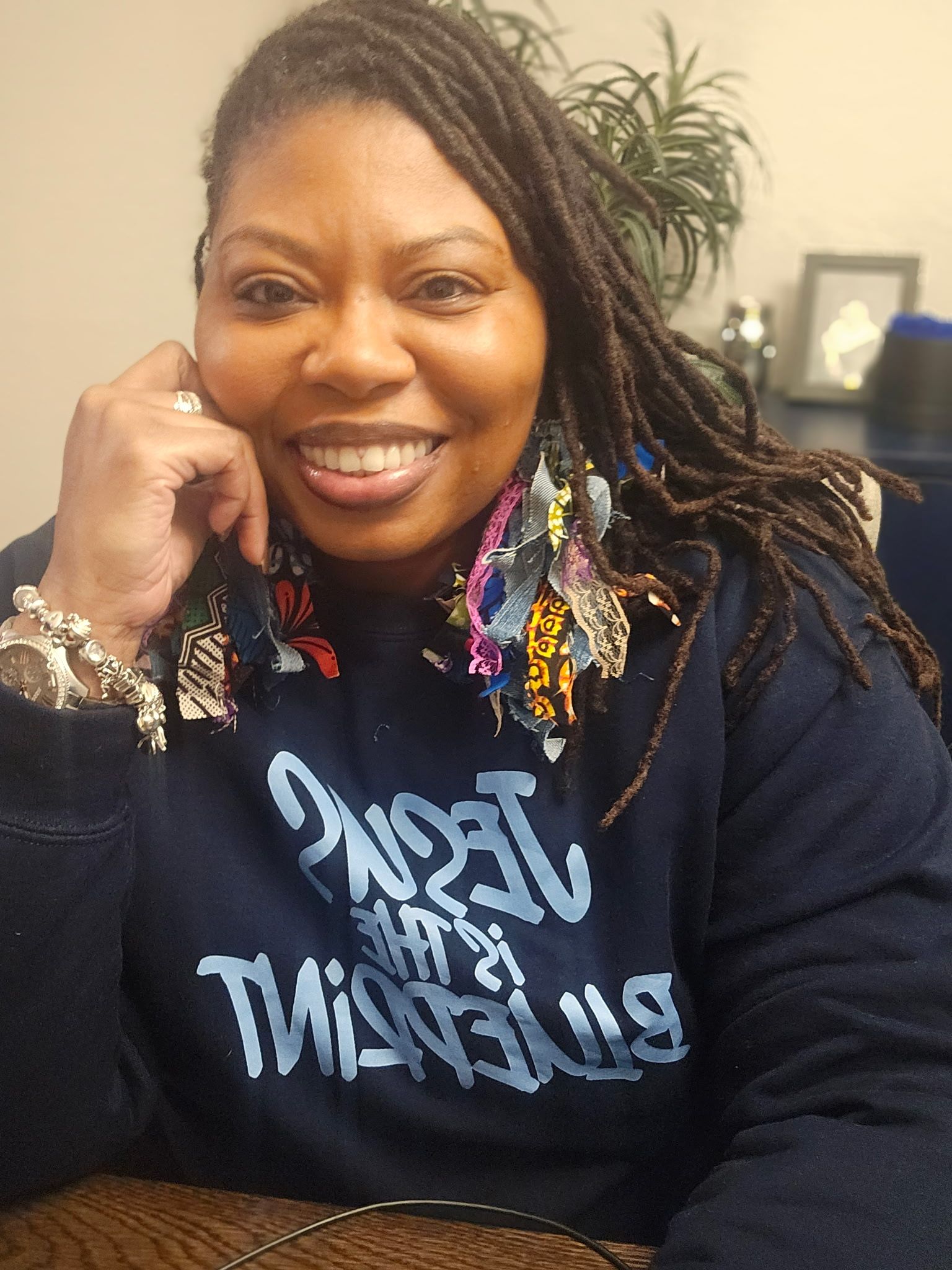Story of Hope: Michelle Ward
Story of Hope: Michelle Ward
Michelle Ward has been a Volunteer Advocate since January 2021. Michelle's advocacy on behalf of a teenager experiencing multiple kinships and fictive kinship placements due to her substance abuse has been the most rewarding journey so far. In fact, due to her advocacy efforts on behalf of this youth, Michelle has been requested by the court to be assigned another teen with high needs who is in foster care and dealing with her own CPS case for her daughter. As an advocate, it is important to recognize the impacts of your advocacy efforts and understand that the Judge truly looks to you as the voice of the child. This Story of Hope is about Michelle and Sissy and how advocacy can help illuminate a child's voice.
Michelle's journey with Sissy began in March 2021. This young woman was the youngest of two sisters, and a shining star academically and on the softball field. Sissy has spent two years in foster care so far and is expected to age out. Michelle has encouraged Sissy to age out so that she may receive her extended care benefits (Educational & Training Voucher and Supervised Independent Living) while concurrently repairing her relationships with her mother. Although CASA's mission is the reunify children with their parents when it is safe and possible, some of our youth are at the critical age of 17 and may stand to lose many benefits which support them if they reunify with their parents. Sissy's mother and Sissy are both eager for Sissy to use her benefits to obtain an education and receive long-term supportive housing. Since Sissy is aging out, Michelle has been supportive in the reparation of her and her mother's relationship so that they may have a healthy relationship which is crucial to both their sobriety needs.
Long-term foster care has many effects on our youth including their mental health and family relationships. Sissy started using substances and needed treatment so that she may cope without depending on substances. After the first positive drug screening for Sissy, Michelle immediately began advocating for inpatient drug treatment, which is a difficult service to obtain for youth who do not recognize they are using substances to cope with their trauma. Multiple progress reports were made available so that a Judge may monitor high-risk youth. With the support of the documents, the Judge encourage Sissy to attend substance abuse treatment. With the encouragement of the Judge, her Advocate, and her CPS caseworker, Sissy agreed to do inpatient treatment so she may return to her family's home safely and learn life-long coping skills.
Michelle has maintained contact with Sissy's mother so she may check in on her sobriety, encourage her to use healthy coping skills, identify possible triggers within her own daughter's child abuse, and assess the progress of their family therapy. Recognizing the full extent of Sissy's supportive network, both Sissy and her mother have meaningfully engaged in therapy and have begun to take steps to improve and safeguard their relationship without the involvement of substance abuse.
In order for Sissy not to fall behind in credit recovery, Michelle has also advocated for a facility to provide Sissy with the technology necessary to obtain these credits in addition to their full schedule and activities and therapies.
This Story of Hope is of Michelle, Sissy, and her support system who have come together to give this family the tools they need to remain sober and make their relationship healthier. A parent in recovery supporting their own child in recovery is not an easy task, but Michelle has been there every step of the way to create the most positive outcomes for Sissy's future while holding each other accountable for their choices and celebrating each small step towards a better future for their family.
We look forward to seeing Sissy thrive in young adulthood and achieve her dreams while remaining sober and ending the cycle of substance abuse in her family.









